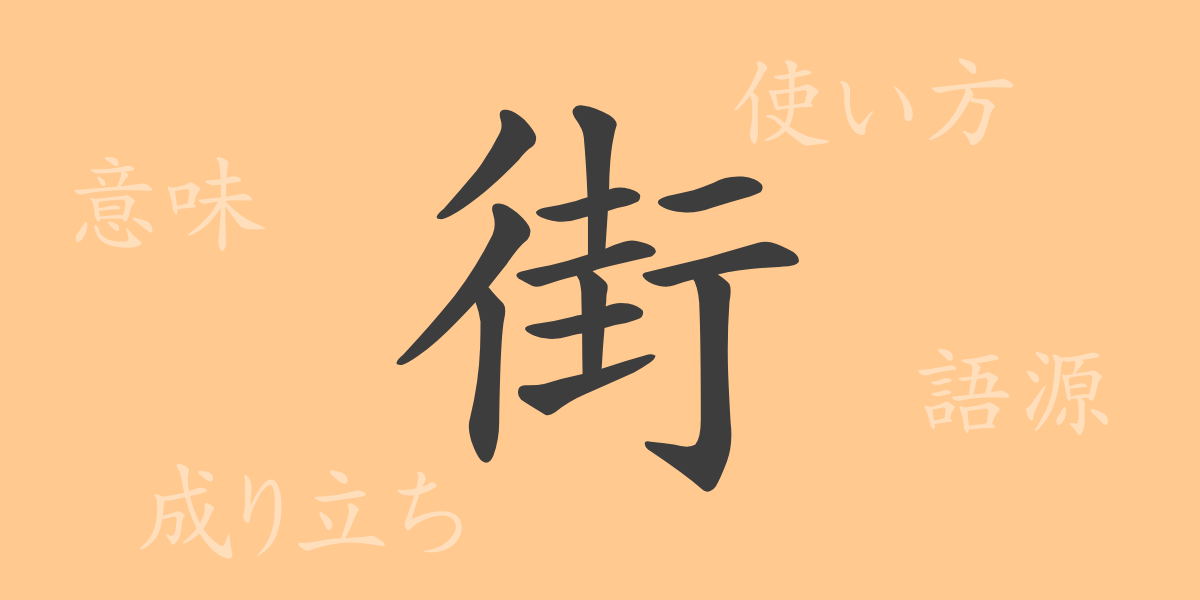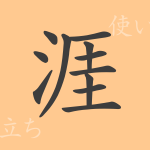Deeply rooted in Japanese culture and history is the concept of “街” (Machi), which encapsulates the bustling activities of people and is an indispensable part of our lives. This article delves into the commonly used kanji “街” (Machi), exploring its origins, meaning, usage, pronunciation, and extends to phrases and proverbs that include “街” (Machi). Join us as we unravel the rich story behind this kanji that we frequently encounter in our daily lives.
The Origin (Etymology) of 街 (Machi)
The character “街” (Machi) originated from a word meaning crossroads in ancient China. The place where roads intersect, or “街” (Machi), has served as a gathering and exchange spot for people. The structure of the character combines “行” (Gyou), which represents movement, with “圭” (Kei), symbolizing land. Together, they convey the meaning of a place where people come and go on land.
The Meaning and Usage of 街 (Machi)
In modern Japanese, “街” (Machi) refers to an area where residential and commercial facilities are concentrated, or a district within an urban area. The town serves as a living space for people and functions as a hub for business and cultural transmission. Common usages include phrases like “I met a friend on the street corner” or “walking through the town.”
Pronunciation, Stroke Count, and Radical of 街 (Machi)
The kanji “街” (Machi) has distinctive features in its pronunciation and writing in Japanese.
- Pronunciation: The on’yomi (Sino-Japanese reading) is “がい” (Gai), while the kun’yomi (native Japanese reading) is “まち” (Machi).
- Stroke Count: The kanji “街” (Machi) has 12 strokes.
- Radical: The radical of this kanji is “行” (Gyou).
Phrases, Idioms, and Proverbs Using 街 (Machi) and Their Meanings
There are numerous phrases, idioms, and proverbs in Japanese that include “街” (Machi). For example, “街頭演説” (Gaitou enzetsu) literally refers to a street-corner speech, often used by politicians. “街灯” (Gaitou) means streetlights installed at roadsides and street corners to ensure safety at night. The proverb “街を取るに足らず” (Machi o toru ni tarazu) teaches us not to fuss over trivial matters.
Conclusion on 街 (Machi)
The kanji “街” (Machi) is intimately connected to our daily lives, shaping the activities and culture of people. Beyond its geographical significance, this character reflects the lives, history, and culture of the people. We hope that through this exploration, you have gained a new perspective on the streets you walk every day.

























